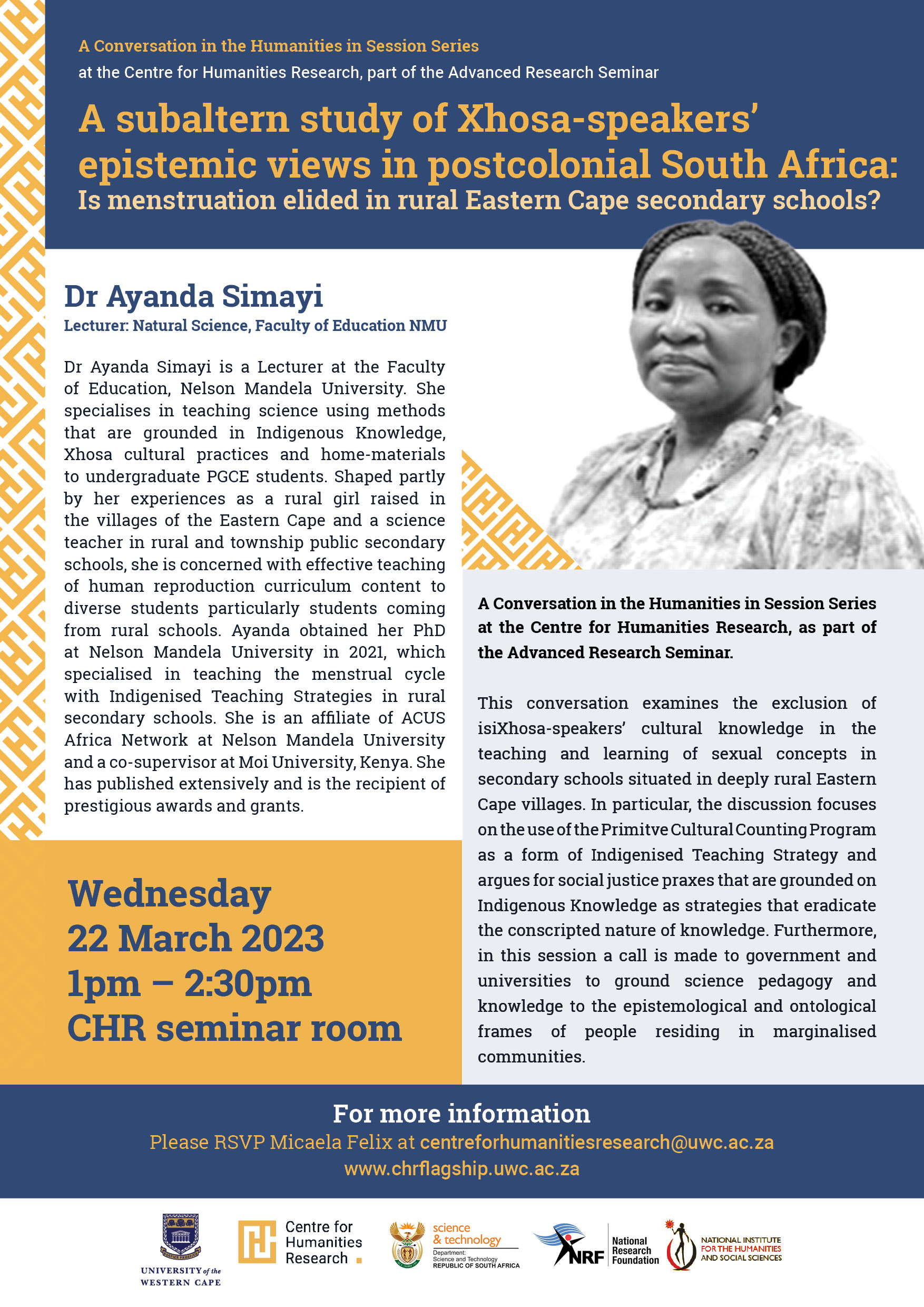Bio
Dr Ayanda Simayi is a Lecturer at the Faculty of Education, Nelson Mandela University. She specialises in teaching science using methods that are grounded in Indigenous Knowledge, Xhosa cultural practices and home-materials to undergraduate PGCE students. Shaped partly by her experiences as a rural girl raised in the villages of the Eastern Cape and a science teacher in rural and township public secondary schools, she is concerned with effective teaching of human reproduction curriculum content to diverse students particularly students coming from rural schools. She obtained her PhD at Nelson Mandela University in 2021, which was funded by a scholarship from East and South African Centre of Excellence for Educational Research Methodologies and Management (CERM-ESA). This research specialised in teaching the menstrual cycle with Indigenised Teaching Strategies in rural secondary schools. She is an affiliate of ACUSAfrica Network at Nelson Mandela University and a co-supervisor at Moi University, Kenya. She has published extensively and is the recipient of prestigious awards and grants, including Nelson Mandela’s Leading Emerging Excellent Teacher Award, Faculty Leading Emerging Excellent Teacher, SAERA National Institute for the Humanities and Social Sciences (NIHSS) Early Career Researcher’s Award, and Teaching Discretionary Fund from Department of Higher Education and Training (DHET) and University Capacity Development Grant (UCDG).
Abstract
This conversation examines the exclusion of isiXhosa-speakers’ cultural knowledge in the teaching and learning of science sexual concepts in secondary schools situated in deeply rural Eastern Cape villages. Argument is raised on the negative impact of subalternity (Lalu, 2008), pointing that epistemic exclusion of the Indigenous Knowledge and language of rural-based students deprives them from economic access and equal education opportunities at universities. As the question of acceptable language and cultural practice used in teaching sexual concepts is regarded as sensitive across the globe (Chilisa & Ntseane, 2010), (Gay, 2013; Simayi & Webb, 2020), I raise a question of whether the menstrual cycle is taught effciently or is avoided in rural areas. In particular, the discussion focuses on the use of the Primitve Cultural Counting Program as a form of Indigenised Teaching Strategy (Simayi, 2021) that breaks cultural barriers by enabling the naming of avoided or elided menstrual cycle concepts and maps them to the scientific menstrual cycle in the science curriculum. Further, argument is put forward for social justice praxes that are grounded on Indigenous Knowledge as strategies that eradicate the conscripted nature of knowledge (Keet, 2014). Finally, a call is made to government and universities to ground science pedagogy and knowledge to the epistemological and ontological frames of people residing in marginalised communities.


